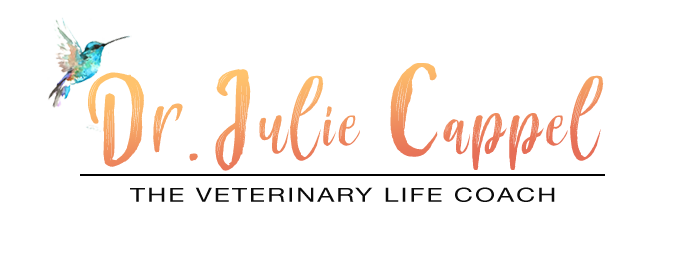Yesterday I looked at my veterinary
life coaching blog and realized that I had reached the 10,000 reads mark on “Blogger”. I was super excited about seeing that
number! 10,000 reads may not seem
like a big number for some bloggers, but for me it feels like a big
accomplishment.
When I started writing a blog sporadically
for my veterinary hospital several years ago I did not believe that I was much
of a writer, but I decided to do it anyway for the good of my hospital. Pushing myself out of my comfort zone
and writing for the hospital was fun and challenging, but I did not commit to
it fully or write consistently.
In 2018 I resolved to push myself into
a different world entirely, veterinary life coaching. In May I started
writing a blog for veterinarians and veterinary professionals to address some
of the issues that I saw as problematic.
The incidence of anxiety, burnout and even suicide in our profession is so
disturbing and I want to make my fellow veterinarians and their teams feel
supported and understood.
When I started “The Veterinary Life
Coach” blog I committed to writing a post each week and distributing it to as
many people in the profession as possible. I wanted to use my experiences as a veterinarian, practice
owner, board member, mother, and coach to spread support to others in my
profession.
That brings me to the concept of
possibility thinking for 2019.
Being a possibility thinker can lead you to do many things that you
previously thought were impossible, such as my 10,000 reads.
What is possibility thinking?
Possibility thinking is using the power
of your thoughts to stretch and push yourself into accomplishing things that
you previously thought were not possible. The most successful people in the world think differently
than most of us. They have the
opinion that they can do anything and they dream big, seemingly impossible
dreams then work to achieve them.
How can YOU become a possibility
thinker?
Look for the possibilities in every
situation. Having the right
attitude will allow you to think bigger and accomplish more. Give up the negative self-talk. If you indulge in negative
thoughts, you will fail before you even begin. Trust yourself and push forward taking small steps towards
your ultimate goal. Use the power
of the 80/20 rule to prioritize your steps, then just start moving.
Dream one step bigger than your brain
wants you to go. You will feel
fear when you start to think big, but let your mind go there anyway. Become comfortable with being
uncomfortable.
Stay away from doubters and “Debbie
Downers”. Do not listen to
people that want to crush your dreams.
Get inspiration from big picture thinkers. Read books by successful people who have accomplished great
things and focus on their advice. Spend time with people that challenge you and
procure advice from people that you admire. Ask for help when needed (maybe get a coach) and do not fear
failure. Failure is the way we
learn.
My small level of success at 10,000
reads, plus the fact that I was able to publish some of my blogs at DVM 360,
The Michigan Veterinarian and Andy Roark’s blog are some success steps that will lead
me to doing more things in 2019. I know that the world has many wonderful things
to offer and you and I have the ability to achieve more of them.
Use the power of possibility thinking in 2019 to achieve your dreams.
“If we all did the things we are really
capable of doing, we would literally astound ourselves.”
― Thomas A. Edison
― Thomas A. Edison
“If
you embrace possibility thinking, your dreams will go from molehill to mountain
size, and because you believe in possibilities, you put yourself in position to
achieve them.”
—
John C. Maxwell
Dr. Julie Cappel










